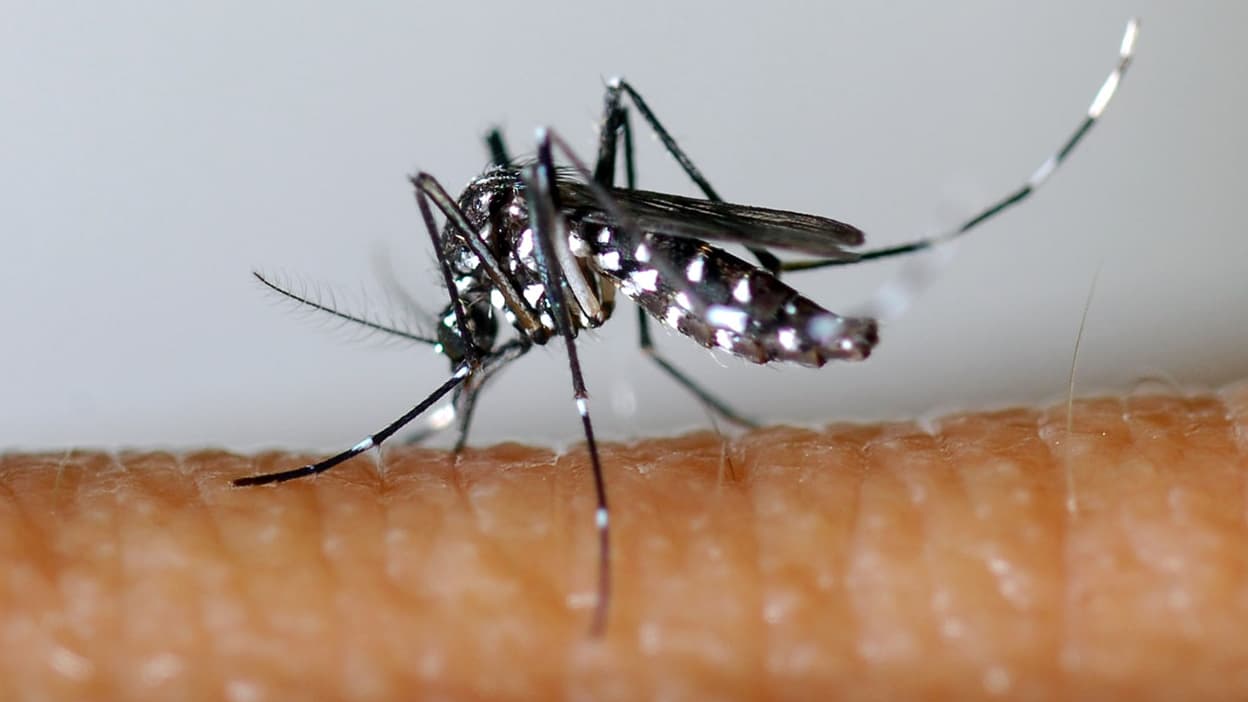
Eurometropolis increased its budget almost fourfold, to 200,000 euros, to intensify its war against tiger mosquitoes, which carry viral diseases such as dengue fever or chikungunya.
They are so small but their power to disturb is great: in the face of the tiger mosquito, the European city of Strasbourg announced on Monday 18 March the intensification of its fight with a biological larvicide.
As in other French regions, “we have been witnessing for several years – and it is only progressing – the spread of the tiger mosquito,” also known by the scientific name Aedes albopictus, noted Pia Imps, president of Eurométropole.
In addition to disturbing residents, this small insect, recognizable by its black and white stripes, can be a vector of viral diseases, such as dengue or chikungunya.
“We must not take this matter lightly, and therefore we must be more preventive than ever,” Pia Imps stressed during a press conference.
Eurometropol has thus almost quadrupled its budget, to 200,000 euros, and launched an “integrated battle” against the insect, according to Françoise Schietzl, Eurometropol’s vice-president in charge of environmental health.
Larvicide has a “limited” risk to the environment
“This means that in the same geographical area, we jointly develop several types of actions: raising awareness among individuals about good actions – such as emptying plates, flower pots or watering cans that can constitute a 'breeding ground for larvae' – training municipalities and 'mobilisation Social Affairs” by deploying “ambassadors” responsible for delivering prevention messages, and finally treating rainwater drains.
To do this, larvicide will be poured into these drains located in public places.
“It is a product based on BTI, Bacillus Thuringiensis Israelensis, which is a bacteria that kills the larvae after it is ingested,” explains Christelle Bender, technical director at the Bas-Rhin Mosquito Control Federation. It confirms that between 60 and 80% of the larvae will die, with a “limited” risk to the environment.
If this method does not eliminate the tiger mosquito, it will reduce its population. Because during her short life (three to four weeks), the female lays five, six or seven times, about a hundred eggs each time, says Christelle Bender.
In the fight against this insect, climate change plays in favor of the tiger mosquito, as the Deputy Mayor of Strasbourg responsible for health, Alexandre Feltz, denounces: “We no longer have harsh winters that allow us to destroy the larvae.”
The warmer the weather, the shorter the mosquito's development cycle. The tiger mosquito arrived in the French capital in 2004 and is now present in 71 departments.






